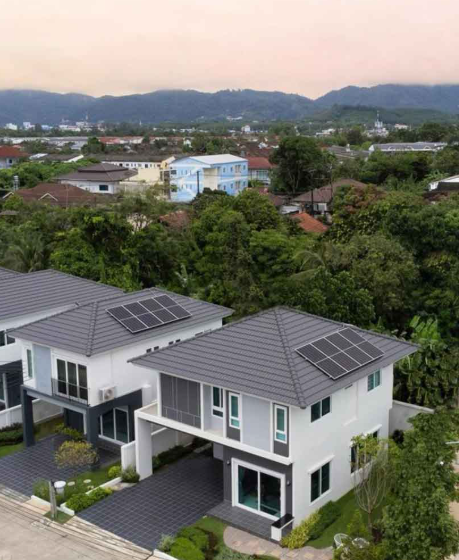In response to growing challenges in the real estate sector, Thailand has introduced a set of significant property measures aimed at enhancing the market and attracting foreign investment. These changes, unveiled in 2024, reflect the country’s broader economic strategy and commitment to long-term sustainable development. The new measures seek to address key issues, including foreign ownership regulations, urban development, and market stability.
Key Reforms in Thailand’s Property Sector
Adjusted Foreign Ownership Rules
One of the most noteworthy updates is the adjustment to foreign ownership limits in condominium projects. Previously set at 49%, the foreign ownership cap has now been raised to 60% in high-demand areas like Bangkok’s city center and popular tourist destinations such as Phuket and Chiang Mai. This change aims to attract more international buyers, particularly in the luxury property market, where demand often exceeds supply. However, the new ownership limit only applies to newly developed condominiums, not existing properties. Foreign buyers will still need to transfer funds from abroad to complete their purchases.
Changes in Property Taxation
To encourage long-term investment and reduce speculative buying, Thailand has introduced several new property taxation measures:
- Vacancy Tax: A new tax will be levied on residential properties that remain vacant for extended periods. This is designed to discourage speculative investments and encourage owners to either sell or lease their properties.
- Luxury Property Tax: A progressive tax on high-value residential properties aims to ensure that wealthy property owners contribute fairly to public finances.
Green Building Initiatives
Sustainability is a core component of Thailand’s new property measures. The government is promoting eco-friendly building practices through:
- Incentives for Green Construction: Developers and property owners who use sustainable materials and energy-efficient systems will benefit from tax breaks and reduced permit fees.
- Energy Efficiency Standards: New regulations set energy efficiency standards for both residential and commercial buildings. All new construction projects must comply with these standards, and existing buildings will undergo periodic assessments.
Urban Development and Infrastructure Investment
The new regulations also emphasize the importance of urban planning and infrastructure development. Thailand is introducing updated guidelines to manage urban growth and prevent overcrowding. These include:
- Zoning regulations and building height restrictions
- Requirements for green spaces in urban areas
Additionally, the government is investing in infrastructure projects, including public transportation, utilities, and public spaces, to improve the quality of life in urban areas and make them more attractive to both residents and investors.
Enhanced Legal Protections for Buyers
To ensure greater transparency and security in property transactions, Thailand has introduced several legal reforms:
- Streamlined Property Title Registration: The government has simplified the process of property title registration to reduce bureaucratic delays and improve efficiency.
- Consumer Protection Laws: New regulations aim to protect property buyers from fraud and ensure developers fulfill their contractual obligations. These include stronger enforcement of building codes and warranties.
Anticipated Effects on the Real Estate Market
These measures are expected to have a profound impact on Thailand’s real estate sector:
- Foreign Investment: With the new foreign ownership limits, Thailand is likely to see an influx of international investors, particularly in the luxury market. This will not only drive growth in high-end properties but also contribute to broader economic development by creating jobs and stimulating business activity.
- Reduced Speculation: The introduction of vacancy and luxury property taxes is designed to reduce speculative activity and encourage more long-term investments. This should help stabilize the property market, making it less vulnerable to short-term fluctuations.
- Sustainability: The green building incentives and energy efficiency standards position Thailand as a forward-thinking market committed to sustainability. These reforms will likely attract eco-conscious developers and investors, aligning with global trends towards greener urban development.
- Improved Urban Life: By focusing on urban planning and infrastructure, the Thai government aims to enhance the livability of cities. With better public transportation, more green spaces, and modern amenities, urban areas will become more appealing to both residents and investors.
Challenges to Consider
While the new property measures hold promise, there are challenges that need to be addressed:
- Implementation and Compliance: The success of these reforms will depend on effective implementation. The government will need to ensure that regulatory bodies are equipped to manage the changes and enforce the new rules.
- Market Response: It’s uncertain how the market will react to these new measures. Developers and investors may need time to adapt, and there could be a transitional period as the market adjusts to the changes.
Conclusion
Thailand’s new property measures mark a significant shift in the country’s approach to real estate regulation. With increased foreign ownership limits, changes in property taxation, a focus on sustainability, and stronger legal protections, Thailand aims to create a more dynamic and balanced property market. These reforms are part of a broader strategy to foster economic growth and development, positioning the country as a competitive player in the global real estate market.
For buyers, investors, and developers, staying informed about these new regulations will be crucial for navigating Thailand’s evolving property landscape. As the market adapts, these changes open the door to exciting opportunities in the Thai real estate sector.


